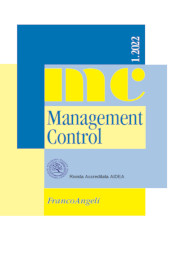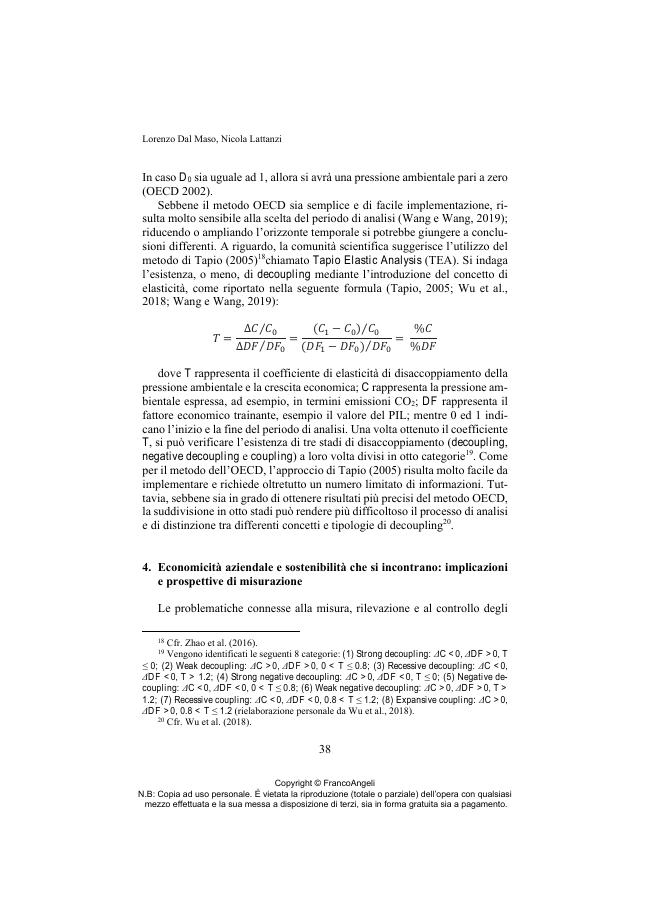Strategia aziendale e creazione di valore nella Decoupling Economy : le prospettive di misurazione disaccoppiata della performance
31-44 p.
To develop an effective sustainability strategy, organizations must embrace the great global challenges that sustainable growth determines. The objective of a decoupling economy, which refers to breaking the link between environmental "bads" and economic "goods", is part of these challenges. Particularly, decoupling occurs when the growth rate of an environmental pressure is less than that of its economic driving force (e.g., gross domestic product (GDP)) over a given period. An increasing number of companies currently implement the principles of the decoupling economy in their strategies, seeking to achieve an increase of their profitability together with a reduction of the environmental effects of their activities.
The article analyzes the process of implementing the decoupling strategy in organizations and then considers redesigning the performance measurement system (PMS). Regarding the latter, the article analyzes the changes to be introduced in the PMS to ensure its coherence with the contents of the decoupling strategy. Such a coherence is vital not only to ensure that managers' and employees' behaviors are aligned with the goals of the decoupling strategy but also to monitor the effective deployment of the decoupling strategy at the operational level. [Publisher's text].
Fait partie de
Management Control : 1, 2022-
Articles du même numéro (disponibles individuellement)
-
Informations
Code DOI : 10.3280/MACO2022-001003
ISSN: 2239-4397
KEYWORDS
- Environmental performance, Performance measurement systems, Decoupling strategies



